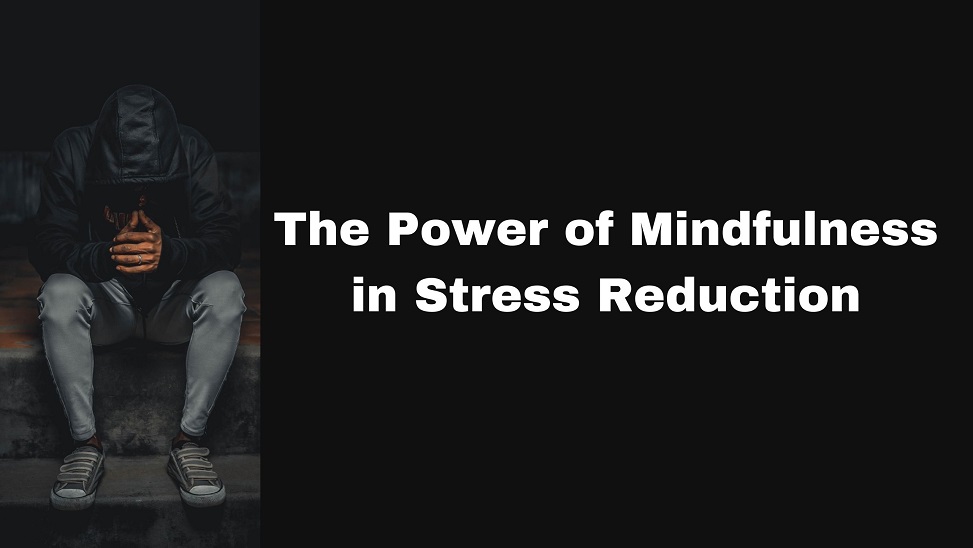The Power of Mindfulness in Stress Reduction
In a world filled with the constant demands and distractions, stress has become a pervasive experience.
However, amidst the chaos, a simple yet powerful practice called mindfulness offers a way to manage and reduce stress.
Mindfulness, rooted in ancient traditions, has gained significant recognition in recent years for its ability to cultivate awareness, enhance mental well-being, and provide a refuge from the pressures of modern life.
This article explores the concept of mindfulness and its transformative impact on stress reduction.
Understanding Mindfulness
Mindfulness is being fully present in the current moment without judgment or attachment. It involves observing your thoughts, feelings, and sensations without trying to change or control them.
By cultivating non-reactive awareness, mindfulness allows you to step back from the automatic reactions that often accompany stress.
The Mind-Body Connection
Mindfulness works by fostering a stronger mind-body connection:
Reducing Rumination: Mindfulness helps break the cycle of rumination—repetitive, negative thoughts that amplify stress. Instead of getting caught in thought loops, mindfulness encourages observing thoughts as passing events.
Calming the Nervous System: Mindfulness triggers the relaxation response, reducing the production of stress hormones like cortisol and promoting a sense of calm.
Enhancing Emotional Regulation: By observing emotions without immediately reacting, mindfulness allows you to respond to situations with greater emotional intelligence, reducing stress-related outbursts.
Benefits of Mindfulness for Stress Reduction
Stress Reduction: Mindfulness helps lower overall stress levels by increasing your ability to respond to stressors with greater calmness and resilience.
Improved Focus: Practicing mindfulness sharpens your focus and concentration, enabling you to tackle tasks more effectively and efficiently.
Enhanced Self-Awareness: Mindfulness cultivates self-awareness, helping you recognize stress triggers and patterns in your thoughts and behaviors.
Emotional Well-Being: Regular mindfulness practice can lead to decreased feelings of anxiety, depression, and irritability, fostering emotional well-being.
Mindful Coping: Mindfulness equips you with tools to cope with stressors in a healthier way, reducing reliance on negative coping mechanisms.
Incorporating Mindfulness into Your Life
Mindful Breathing: Focus on your breath, observing its rhythm and sensation. This simple practice can be done at anytime, anywhere, and helps anchor you to the present moment.
Body Scan: Spend a few minutes each day mentally scanning your body from head to toe, noticing any areas of tension or discomfort.
Mindful Eating: Engage all your senses while eating. Pay attention to the colors, textures & flavors of your food.
Mindful Walking: While walking, focus on the sensation of your feet hitting to the ground, the movement of your body, and the environment around you.
Guided Meditation: Use guided meditation apps or recordings to help you cultivate mindfulness and relaxation.
Mindful Journaling: Write your thoughts, emotions, and experiences without judgment. This practice enhances self-awareness.
Conclusion
Mindfulness offers a path to reclaiming control over your thoughts, emotions, and reactions, thus reducing the impact of stress on your life.
Practicing mindfulness regularly can cultivate a deeper sense of awareness, reduce rumination, and develop healthier ways of coping with stressors.
The power of mindfulness lies in its simplicity—it’s a practice that requires only your presence and intention. Integrating mindfulness into your daily routine, you’ll discover its transformative effects on stress reduction and overall well-being.
Thanks for visiting How To Cure Stress

